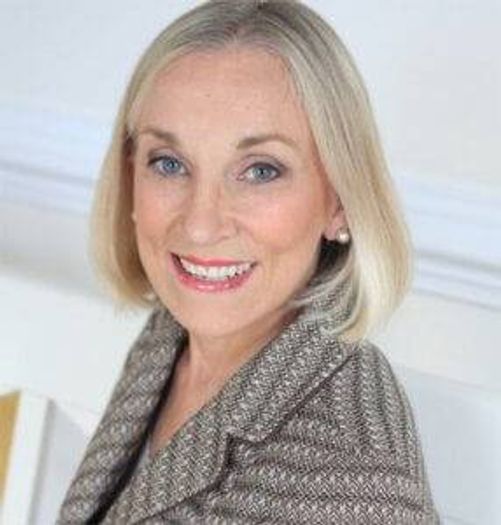Do Women Really Need Financial Advice for Women?
What experts said after the shutdown of another female-focused robo adviser
(Editor’s Note: This story is part of a partnership between Next Avenue and Chasing the Dream, a public media initiative on poverty and opportunity.)

Talk about lighting a match.
When Next Avenue Managing Editor Richard Eisenberg (the editor of this blog), recently posted on his Facebook page his disappointment about the closing of WorthFM, an online robo adviser for female investors, he got pummeled by some women personal finance journalists he knew.
The consensus: Women don’t need personal finance services just for them. “As long as the life expectancy (and therefore retirement spending) calculators adjust for gender, we're good,” one wrote. “Women-focused financial marketing. Too manipulative and too expensive,” declared another. “Women do need to plan for less income/longer lifestyle and more fear, generally, than men when it comes to investing. But they don't need all the pink washing and paternalistic sales pitches,” blasted a third.
Do Women Need Financial Advice for Women?
So my question of the day: Do women really need women-only money management? I spoke to four personal finance experts — three women and one man for good measure — for their opinion. (Sallie Krawcheck, founder of the women-focused robo adviser Ellevest, did not return my query for a comment.)
When the WorthFM advisory service shut down in December, with roughly 600 clients and $2.7 million in assets under management, its homepage explained this was due to “many factors including industry shifts and our own business.” A few years ago, when the firm and other female-focused robo advisers run by, and for, women launched — SUM180, SheCapital (now defunct), Beauty & The Bull (also defunct) and Ellevest — Eisenberg wrote on Next Avenue: “For years, many women have complained that Wall Street and financial advisers ignore them, don’t understand them or patronize them.” He queried: “Will women want to, and actually, use these firms? And will the firms be able to stay in business? That I’m not so sure about. For one thing, some people (women and men) take offense at the whole idea of financial firms, products and services for women only.”
Can you say, prescient?
What Women Want and Don't Want
I am firmly in the camp believing that women don’t need gender-specific advisers. In my view, women don’t need to be serviced by financial advisers in a “special” way. Nor do we want, or value, generic advice on a financial firm’s site geared to “women.” We don’t want girly approaches.
What we do want are advisers who treat us as individuals. And, for me at least, if the adviser happens to be a woman, all the better. Most importantly, we want to work with an adviser who’ll be happy to listen and learn about all aspects of our lives and answer questions without making us feel stupid or less than. And we don’t want to feel pressured to buy an investment product or make a fast decision. (I doubt men do either.)
Another thing we don’t want: excessive fees for “female friendly” guidance. Yet that’s exactly what sometimes happens with women-focused robo advisers.
In its new, excellent report on robo advisers, Money magazine found that Ellevest’s fees are steep — ranging from an average of 0.42 percent for a basic Ellevest Digital account to 1.17 percent for Ellevest Private Wealth Management (minimum investment: $1 million). The average robo adviser management fee, Money said, is roughly a third of traditional human advisers: just 0.36 percent. (After this story and Money's story were published, Ellevest told Next Avenue that the correct number for Ellevest's "All In" fees is 0.35 percent, not 0.42 percent.)
What 4 Money Experts Said
Here’s what the four personal finance experts I interviewed had to say about whether women 50+ need, or want, advice tailored just for women (quotes have been edited for space):
Carla Dearing, SUM180’s founding CEO:
“Women do not need women-only money management if it is going to be structured and delivered in traditional ways and just wrapped in a pink bow. The approach has to be much more fundamental.

Our research at SUM180 shows that women have been staying on the sidelines in the financial services industry because existing products fail to address our primary financial priorities, which are, in priority order: being a burden to children, financial security, protection and maintaining a standard of living. Yet the industry continues to focus its messaging on ‘wealth management,’ ‘retirement,’ ‘invest now’ and ‘beat the market.’
Women often feel at a disadvantage in a playing field that seems overwhelmingly geared toward people with a lot of money; we are turned off by the whole investment 'game' and we really don’t want to spend large chunks of our time thinking, and talking, about our money.
The problem is that few financial products and services are designed to take a holistic approach across all of the financial concerns in our lives. And unfortunately, this is particularly true for clients with fewer investable assets and lower incomes — arguably, the very clients who need support from the financial services industry the most.
So the industry needs to throw out its playbook, not just try to wrap it in a pink bow. When products and services are fundamentally rebuilt to meet women's needs, they will capture a large and willing market.”
Eleanor Blayney, a Certified Financial Planner and former gender diversity specialist for CFP Board Center for Financial Planning:
“Investing is not inherently a gendered activity, though many think of it as such. For example, there is the widespread perception that investing is a man’s job, a view that is reinforced by the dearth of women investment managers.

I do think nonetheless that there is definitely a place for investment services that are focused on women, such as Ellevest. It is important that the providers of such services recognize the fundamental disparity between what women will need over their lifetimes due to women’s longer lives, time out of the workforce to raise families and lower pay for equal work. And the fact that Social Security benefits are based on 35 years of employment. For those with fewer than 35 years —predominantly women — zeros for the non-working years are averaged in, resulting in lower benefits.
What all this means is that women need to invest differently than men. They need to take more risk, which generally means they need more domestic and international equities relative to their male counterparts. They also need to consider disability insurance, long-term care insurance and sufficient life insurance on their partners as part of their strategy for growing and preserving wealth. They should be encouraged to delay taking their Social Security until 70, significantly increasing their benefits.
In my view, what any ‘Investing for Women’ provider must provide is comprehensive financial planning, first and foremost, for women. And this planning needs to take into account not just investment of financial capital but a woman’s human capital as well. An adviser needs to help women maximize their salaries through smart career choices, negotiating for raises and advancements, making optimal use of workplace benefits.”
Sheryl Garrett, founder of the Garrett Planning Network financial planning firm:
“Do women really need women-only money management? Some do...

For my mother's generation, it was and continues to be, that they are often more comfortable with a male money manager. My mother also felt that younger generations likely feel differently than she does and I strongly concur. Also, I've met some women divorcees who aren't ready to trust, or open up to, a man in the same way as they felt they could with a woman.
The overwhelming majority of clients are couples, and who takes the lead varies by couple. I heard from many that the couple preferred working with a woman because their focus was on the whole picture... the family, kids, parents, career ambitions, home, lifestyle security — not just their investments.
Many male advisers seem to focus more on investments and pass over the human aspects, which most women tend to prioritize.
I think that it's much more important to find an adviser who truly understands your needs, objectives, fears and frustrations. It boils down to who you connect best with and who you feel you can work with most effectively.”
Dan Egan, director of behavioral finance at the dual-gender robo adviser Betterment:
“When it comes to financial advice, we’ve found that women want the same things as men: great service and customized advice focused on their needs and goals. While advice should be tailored for gender due to factors such as life expectancy, the way customers are treated and the way advice is given should be the same — regardless of gender.
Like all of us, women want an adviser who they can trust, who will do what’s in their best interest. They want someone who knows what they’re talking about and charges a fair price.”
A Question for Women
So now I toss the question out to women readers: Does the idea of having a women-focused firm manage your money appeal to you or strike a “puh-leeze” reaction as it did to Eisenberg’s Facebook friends?
This story is part of our partnership with Chasing the Dream: Poverty and Opportunity in America, a public media initiative on poverty and opportunity. Major funding is provided by The JPB Foundation.


